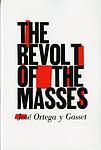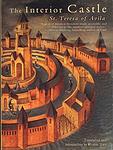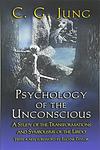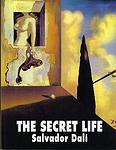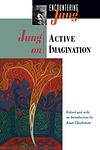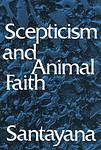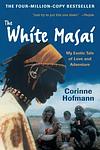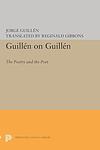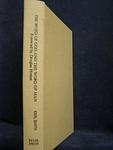The Greatest Spanish, Swiss "Nonfiction" Books of All Time
Click to learn how this list is calculated.
This list represents a comprehensive and trusted collection of the greatest books. Developed through a specialized algorithm, it brings together 300 'best of' book lists to form a definitive guide to the world's most acclaimed books. For those interested in how these books are chosen, additional details can be found on the rankings page.
Genres
Countries
Date Range
Reading Statistics
Click the button below to see how many of these books you've read!
Download
If you're interested in downloading this list as a CSV file for use in a spreadsheet application, you can easily do so by clicking the button below. Please note that to ensure a manageable file size and faster download, the CSV will include details for only the first 500 books.
Download-
1. Memories, Dreams, Reflections by Carl Jung
This book is an autobiography of a renowned psychologist who shares his life experiences, insights, and the development of his theories. The narrative delves into his childhood, his career, his relationship with Sigmund Freud, and his exploration into the human psyche. It also provides an in-depth look at the author's dreams and visions, which greatly influenced his work, and his thoughts on subjects such as life after death, reincarnation, and the collective unconscious.
-
2. On Death and Dying by Elisabeth Kübler-Ross
This groundbreaking book explores the five stages of grief experienced by terminally ill patients. The author, a Swiss-American psychiatrist, introduces the concept of the five stages: denial, anger, bargaining, depression, and acceptance, which has since been universally recognized and applied in various fields. The book is based on the author's series of interviews with dying patients, providing an empathetic and insightful look into the emotional and psychological experiences of those facing death.
-
3. The Revolt of the Masses by José Ortega y Gasset
"The Revolt of the Masses" is a philosophical work that discusses the rise of the "mass man" and the potential danger this presents to society. The author argues that the mass man, characterized by his lack of individuality and rejection of higher values, is a product of modern society and its emphasis on equality. He believes that this mass man, who is more concerned with his rights than his responsibilities, threatens to undermine the very foundations of society, leading to potential chaos and instability. The book serves as a warning and a call for a return to individual responsibility and respect for higher values.
-
4. The True History of the Conquest of New Spain by Bernal Díaz del Castillo
This book provides a first-hand account of the conquest of Mexico by the Spanish during the 16th century. It offers a detailed narrative of the events, battles, and interactions with native tribes, including the Aztecs. The author, a soldier in the Spanish army, provides a unique perspective on Hernán Cortés and his tactics, the politics of the time, and the cultural and religious practices of the indigenous people. The book also highlights the hardships, challenges, and ethical dilemmas faced by the conquistadors.
-
5. Journey to the Alcarria by Camilo José Cela
"Journey to the Alcarria" is a travel literature piece that takes the reader on a journey through the Alcarria region in Spain. The protagonist, a solitary traveler, explores the landscape, culture, and people of this region, offering detailed descriptions and observations. The narrative captures the essence of Spain's post-war period, revealing the harsh realities of rural life and the resilience of its people. The book is both a physical journey through a specific place and a metaphorical journey into the human condition.
-
6. Mortal y rosa by Francisco Umbral
"Mortal y Rosa" is a heartbreaking and poignant narrative about a father's grieving process after the loss of his young son. The novel is a profound exploration of death, love, and loss, with the author using beautiful, poetic language to express his deep sorrow and pain. It is not just a lamentation, but also a reflection on life, childhood, and the fleeting nature of time. The book is a testament to the power of words in expressing the inexpressible and a moving tribute to a life cut tragically short.
-
7. Love in the Western World by Denis de Rougemont
The book is an in-depth exploration of the concept of love as it has evolved in Western society, tracing its development from the myth of Tristan and Iseult to modern times. The author argues that the idea of passionate, romantic love that is prevalent in the West is fundamentally a form of destructive passion, often leading to pain and tragedy. The book also delves into the socio-cultural aspects of love, examining how societal norms and expectations shape our understanding and experience of love.
-
8. The Interior Castle by Teresa of Avila
"The Interior Castle" is a spiritual guide that uses the metaphor of a castle with seven chambers, or 'mansions', to explain the journey of faith. The author describes each mansion as a step closer to God, with the innermost chamber representing union with the divine. The book explores various spiritual concepts such as self-knowledge, detachment, humility, and divine love, providing a roadmap for personal transformation and spiritual growth.
-
9. The Poems Of St. John Of The Cross by John of the Cross
The book is a collection of mystical poetry written by a 16th-century Spanish monk who explores the profound depths of Christian spirituality and the soul's journey towards union with God. Through his lyrical verses, the author delves into themes of love, suffering, and the quest for spiritual purification and enlightenment. His poems are celebrated for their rich imagery and emotional intensity, reflecting his own experiences and the contemplative life. The work is considered a pinnacle of Spanish literature and a significant contribution to Christian mysticism, offering readers a path to understanding the complexities of the divine and the inner workings of the soul.
-
10. Greguerias by Ramón Gómez de la Serna
The book is a collection of witty, poetic, and often surreal aphorisms and reflections that blend humor, irony, and keen observation to capture the essence of everyday objects and experiences in a unique and thought-provoking way. These brief, imaginative musings offer a window into the author's playful mind, as he transforms the mundane into the extraordinary with his inventive use of language and metaphor. The work is a testament to the author's innovative spirit and his ability to see the world through a lens of whimsical creativity.
-
11. Mars by Fritz Zorn
"Mars" is a poignant autobiographical account of a young man's life and his battle with terminal cancer. The narrative delves into the author's affluent yet emotionally barren upbringing in a Swiss suburb, which he refers to as "Mars," symbolizing its cold and alienating environment. The book is a critique of his repressive bourgeois society, which he believes contributed to his psychological and physical illness. Through introspective and often angry prose, the author explores themes of alienation, the search for identity, and the impact of societal norms on individual well-being. His struggle is not only against the disease but also against the cultural and familial constraints that stifled his emotional development.
-
12. Grid Systems In Graphic Design by Josef Müller-Brockmann
This book is a seminal guide to graphic design and typographic composition, focusing on the use of grid systems as a foundational tool for ensuring visual coherence and hierarchy across various design projects. It provides designers with a methodical approach to organizing text and images in a clean, logical, and aesthetically pleasing manner. Through systematic arrangement, the grid serves as an essential framework that can be applied to a wide range of design work, from print media to digital interfaces. The book delves into the principles, applications, and benefits of grid systems, offering practical advice, examples, and clear illustrations to help designers harness the power of grids to create effective, impactful visual communications.
-
13. Psychology of the Unconscious by Carl Jung
"Psychology of the Unconscious" is a pioneering work that explores the complex landscape of the human unconscious, introducing theories that would later become central to understanding personality and human psychology. The book delves into the idea of the collective unconscious, archetypes, and the process of individuation. It further discusses the role of dreams, myths, and symbols in understanding and interpreting the unconscious mind. The author uses case studies and examples from various cultures to support his theories, offering a comprehensive view of the human psyche.
-
14. Judgement and Reasoning in the Child by Jean Piaget
This book is a seminal work in the field of child psychology, exploring the ways in which children develop their cognitive abilities and reasoning skills. The author delves into the mental processes of children, focusing on how they form judgments, understand cause and effect, and develop logical thinking. The book also discusses the stages of cognitive development, highlighting the shift from intuitive to logical thinking. This influential work has greatly contributed to our understanding of child development and education.
-
15. Man and His Symbols by Carl Jung
This book is a comprehensive introduction to the world of depth psychology, exploring the significance of dreams, art, and symbols in everyday life. The author and his colleagues delve into the unconscious mind, discussing its influence on our thoughts, behaviors, and experiences. The book emphasizes the importance of understanding and interpreting symbols as a means to gain insights into our unconscious motivations, fears, and desires. It also discusses the role of archetypes and collective unconscious in shaping human behavior and culture.
-
16. The Course In General Linguistics by Ferdinand de Saussure
"The Course in General Linguistics" is a foundational text in the field of linguistics that outlines the principles of structural linguistics and introduces key concepts such as the linguistic sign, the distinction between langue (language as a system) and parole (language as used in context), and the idea of synchronic versus diachronic analysis. The work emphasizes the arbitrary nature of the sign, which consists of the signifier (the form of the word or phrase) and the signified (the conceptual meaning). This book, compiled from notes by students from the lectures given by its author, has had a profound impact on the development of linguistic theory and has influenced various other disciplines, including anthropology, psychology, and literary theory.
-
17. The Civilization Of The Renaissance In Italy by Jacob Burckhardt
"The Civilization of the Renaissance in Italy" is a seminal work that explores the Italian Renaissance from the 14th to the 16th century, a period marked by significant cultural, artistic, and political developments. The book delves into the revival of antiquity, the rise of individualism, and the secularization of society, examining how these factors influenced the transformation of various aspects of Italian life, including art, politics, and religion. Through a detailed analysis of the period, the author illustrates how the Renaissance represented a break from the traditions of the Middle Ages and laid the groundwork for the modern age.
-
18. The Secret Life Of Salvador Dali by Salvador Dali
"The Secret Life of Salvador Dalí" is an autobiography that offers an intriguing glimpse into the mind and life of the renowned surrealist artist. Written by Dalí himself, the book explores his early years, his rise to fame, and the development of his eccentric and flamboyant persona. Through vivid, often bizarre anecdotes and reflections, Dalí shares his thoughts on art, his obsessions, and his relationships with other famous figures of the 20th century. The narrative is characterized by its imaginative prose and the artist’s characteristic blend of arrogance and insight, providing a unique perspective on his creative genius and complex personality.
-
19. Two Essays on Analytical Psychology by Carl Jung
This book contains two comprehensive essays that delve into the depths of analytical psychology. The first essay explores the role of the unconscious in the human psyche, discussing its influence on dreams, mythology, and mental illnesses. The second essay delves into the process of individuation, which is the psychological process of integrating the conscious and unconscious parts of the mind to achieve self-actualization. This work is a foundational text in understanding the theories and concepts of analytical psychology.
-
20. Scepticism and Animal Faith by George Santayana
"Scepticism and Animal Faith" is a philosophical work that presents the idea that knowledge is not found through evidence or reason, but through animal faith, a term referring to instinctive beliefs. The book delves into the nature of perception and consciousness, and argues that all human knowledge is grounded in unproven preconceptions. The author suggests that to understand the world, humans must first acknowledge their own preconceived notions and biases, and then attempt to understand the world through a lens of skepticism.
-
21. My Last Sigh by Luis Buñuel
"My Last Sigh" is an autobiography that offers a candid and vivid account of the life and career of one of cinema's most groundbreaking and influential directors. The book delves into his early years in Spain, his deep friendships with prominent artists and intellectuals, and his experiences in the surrealist movement. It also explores his creative process, the making of his major films, and his philosophical and personal reflections. Rich with anecdotes and insights, the memoir provides a unique window into the artistic, social, and political climates of his times, revealing the complex and often contradictory nature of a fiercely original filmmaker.
-
22. The Portable Jung by Carl Jung
"The Portable Jung" is a comprehensive collection that encapsulates the core ideas of analytical psychology, as developed by its founder. The book offers a selection of writings that delve into the concepts of the collective unconscious, archetypes, dreams, and individuation. It serves as an accessible introduction to Jung's transformative ideas on the psyche, providing readers with insights into the depths of human behavior and the psychological underpinnings that influence personal growth and understanding. This compilation not only highlights Jung's profound influence on psychology but also his interdisciplinary reach into areas such as mythology, religion, and culture.
-
23. The White Masai by Corinne Hofmann
The book is a true story of a Swiss woman who, while on holiday in Kenya, falls in love with a Samburu warrior. Defying her family, friends, and cultural norms, she decides to leave her life in Switzerland behind to marry him and live in his remote village. The narrative delves into her challenging and transformative journey as she adapts to a vastly different culture, learns the local customs, and navigates the complexities of her interracial marriage and the community's expectations. Her story is one of love, resilience, and the pursuit of happiness in the face of extraordinary cultural differences.
-
24. Guillén On Guillén by Jorge Guillén
"Guillén on Guillén" is a reflective literary work in which the poet himself delves into the essence of his own poetry, offering readers an intimate exploration of his creative process and the thematic underpinnings of his work. Through a series of essays and commentaries, the poet provides insight into his artistic vision, the philosophical and aesthetic considerations that shape his verse, and the personal experiences that inform his poetic expression. This self-analysis serves as a valuable resource for understanding the poet's contributions to literature and the broader context of 20th-century poetic movements.
-
25. The Word of God and the Word of Man by Karl Barth
This book presents a series of sermons that challenge the traditional religious understanding of the time. The author argues that the word of God should not be confined to the Bible alone, but should also include the divine revelation through Jesus Christ. He emphasizes the importance of faith and the need for a personal relationship with God, while criticizing the church for its institutionalization and its focus on rituals and dogma. The book is considered a cornerstone in the development of neo-orthodox theology.
Reading Statistics
Click the button below to see how many of these books you've read!
Download
If you're interested in downloading this list as a CSV file for use in a spreadsheet application, you can easily do so by clicking the button below. Please note that to ensure a manageable file size and faster download, the CSV will include details for only the first 500 books.
Download

